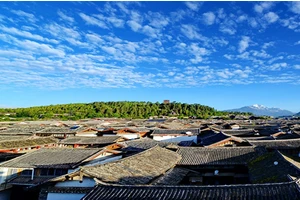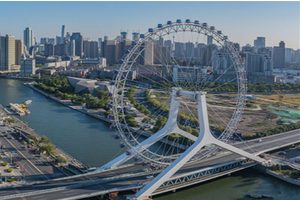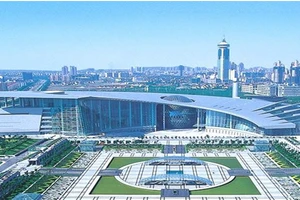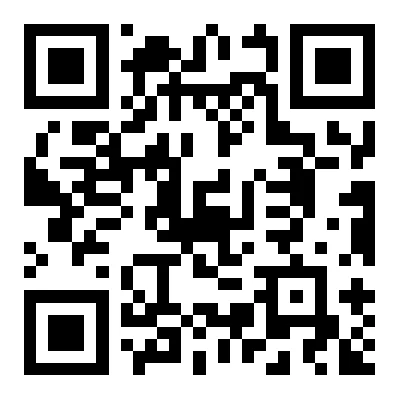Travel network code
College major:
Professional level college (higher vocational education)
The basic academic system is three years.
College degree (higher vocational education)
Professional code 540101
What is it?Tourism management mainly studies the basic knowledge and skills of tourism management and tourism services, and provides services and management for tour guides, restaurants, scenic spots and travel agencies. For example: long-distance and short-distance tourism planning, tourism route design, tourism economic management of theme parks, tourism publicity planning, etc. Keywords: long-distance line park publicity
Learn what?Some colleges and universities have been trained in the following professional directions: tour guide basics, introduction to tourism, China tourism geography, travel agency planning practice, tourism policies and regulations, tourism marketing, service and management of tourist attractions, tourism economics, tourism English and modern hotel management.
what's upTourism enterprises and institutions: hotels, scenic spots, travel agency services and management, tourism planning, tourism development and tourism marketing, exhibition services and management.
detailed annotationThe basic study period is three years.
Career orientationPosts (groups) such as tour guide, planning, marketing, consulting and service for tourism and the new format of "tourism+".
Training goal orientationThis major cultivates the all-round development of morality, intelligence, physique, aesthetics and labor, grasps the solid scientific and cultural foundation, the frontier of "tourism+"industry, reception service, project planning, product design, digital marketing and related laws and regulations, and has the abilities of service quality management, customer relationship management, departmental operation management, service awareness, humanistic literacy and information literacy, and can engage in tourism consulting, tourism product planning, tourism digital marketing, destination operation management and other work.
Major professional ability requirements1. Good language and writing skills, good communication and cooperation skills; 2. Have the ability to deal with common problems in tourism services and have the ability to deal with tourism emergencies; 3. Have the ability of tourism reception service, product design, project planning and digital marketing; 4. Have the management ability of tourism enterprises such as service quality control, customer relationship maintenance and department operation; 5. Have the ability to practice tourism policies, regulations and industry standards, green production and safety protection; 6. Have the ability to adapt to the digital development of tourism industry; 7. Have the ability of safety management and public health emergency response; 8. Have the ability of inquiry learning, lifelong learning and sustainable development.
Major professional courses and practical trainingProfessional basic courses:
Management foundation, introduction to tourism, tourism policies and regulations, tourism professional etiquette, tourism history and culture, China tourism geography, general situation of tourist sources and destinations, and tourism consumer behavior.Professional basic courses:
Travel agency operation and management, scenic spot service and management, hotel operation and management, tourism e-commerce, tourism planning theory and practice, tourism new media marketing, tourism service quality management, customer relationship management.Practical training:
Docking the real professional scene or work situation, we will carry out simulation training of explaining ability and skills, simulation operation of travel agencies (online travel agencies), first aid training of tourism safety, etiquette training of tourism service, research and design training of tourism products, interpretation and inheritance training of local folk customs and intangible cultural heritage, and post skills training of hotels. In the tourism industry, "tourism+"new business entity travel agencies, scenic spots, hotels, online travel e-commerce enterprises, research and tourism service agencies, tourism complexes and other units or places for post practice.Examples of vocational certificates
Professional qualification certificate: professional skill level certificate of tour guide qualification: study travel planning and management, travel planning, customized travel butler service, study travel course design and implementation, and cruise operation service.Examples of continuing majors
Examples of continuing higher vocational undergraduate majors: tourism management, hotel management, tourism planning and design. Examples of continuing ordinary undergraduate majors: tourism management, hotel management.Examples of continuing undergraduate majors
employment rate
77%-83%, 85%-87% in 2019, 91%-97% in 2020 and 2021.proportion of men to women
Boys 22% 78% girlsCourses
Introduction to tourism, tourism psychology, tourism economics, tourism marketing, China tourism geography, tourism law, tourism resources planning and development, tourism product planning and development, tourism e-commerce, tourism network marketing, e-commerce website construction and management, tourism enterprise operation and management, etc.Other information:The professional code of tourism management is 120901K. Tourism management is an undergraduate major in ordinary colleges and universities, which belongs to tourism management major. The basic study period is four years, and it is awarded with a bachelor's degree in management. This major trains senior professionals who meet the needs of market economy and domestic and international tourism development, have the knowledge and ability of economics, management, administration and related disciplines, master the theoretical knowledge and methods of tourism management, have the ability of practical problems in tourism development, and can engage in the research of hotel management, travel agency management and tourism management disciplines in tourism administrative departments and enterprises at all levels.
Material supplement:
The courses of tourism management major mainly include introduction to tourism, tourism management, tourism policies and regulations, travel agency business, travel agency management, tourism geography, tourism psychology, tourism economics, travel agency operation and management, tourism marketing, tourism English, tourism accounting, hotel management, hotel catering service and management, introduction to tourism, tourism culture, tourism resource development and management, scenic spot planning and management, and tourism safety. Graduates of this major can engage in tourism economic management and enterprise management in tourism administrative departments, travel agencies, tourist attractions, tourism consulting companies, tourism e-commerce enterprises, tourism planning agencies and theme parks, or start their own businesses in tourism and leisure industries.
The single code of tourism resources is a way to classify and code various tourism resources in the field of tourism, aiming at systematic management of tourism resources. The following will analyze in detail how to find the single code of tourism resources to ensure the accuracy of tourism planning and information acquisition:
1.** Inquire through official standard documents * *
-* * Refer to relevant national standards * *: You can refer to relevant standards issued by China National Standardization Administration Committee, such as GB/T 18972—2003 Classification, Investigation and Evaluation of Tourism Resources. These standard documents will introduce the classification of tourism resources and the method of assigning codes in detail.
-* * Looking for standard updates * *: Pay attention to the updated information of standards at any time, because with the development of tourism, relevant standards may be revised to meet new demands.
2.** Use the online travel platform to query * *
-* * Use the query function of travel websites * *: Many travel websites provide the query function of individual codes, and you can directly enter the names of scenic spots or projects in the websites to quickly get the corresponding individual codes.
-* * Refer to tourist information websites * *: Tourist information websites often update new tourist resources information, including individual codes, so you can get the latest information by checking these websites regularly.
3.** Consulting professional investigation institutions * *
-* * Hire an investigation team * *: If it is for a professional tourism development project, consider hiring a tourism resource investigation team with professional knowledge background to obtain the individual code on the basis of field investigation.
-* * Obtain authoritative report * *: The investigation team will provide detailed investigation report, which contains information such as the serial number and code number of tourism resources, which is highly authoritative and accurate.
4.** Ask the local tourism management department * *
-* * Contact the local tourism bureau * *: Visit or contact the tourism bureau where the scenic spot is located. Usually, they can provide detailed information of the scenic spot, including the unit code.
-* * Get help and explanation * *: The local tourism management department can also provide more background information and detailed explanations for tourists, which will help to understand the scenic resources more comprehensively.
5.** Search tourism communities and forums * *
-* * Join the discussion in the tourism forum * *: Participate in the discussion in online tourism communities and forums, and ask experienced travelers or professionals for information about the individual codes of tourism resources.
-* * Consult Travel Notes and Raiders * *: Look for relevant travel notes and Raiders in the forum, and experienced travelers often share their experiences of individual codes for specific scenic spots.
6.** Consult travel books and guides * *
-* * Reading guidebooks * *: Buy and consult guidebook books, which usually introduce tourist attractions according to specific classification codes.
-* * Study maps and documents * *: Maps and related tourism documents often involve the distribution of tourism resources and their corresponding codes, which can be used for research and reference.
In addition, after understanding these basic methods, in order to ensure a smoother process of querying the individual codes of tourism resources, the following points need special attention:
-When making inquiries, it is best to choose official or certified platforms and channels to ensure the reliable sources of the inquired information.
-Because different websites and data sources may adopt different code standards, multi-party comparison and verification should be carried out to confirm the accuracy of individual codes.
-Considering the timeliness of tourism resource information, attention should be paid to consulting the latest data and information to obtain the changed unit code.
-If it involves specific tourism planning and development, it is recommended to consult professional institutions or experts to obtain more professional and systematic information on tourism resources.
Generally speaking, the query of individual codes of tourism resources can be realized in many ways, including using modern network platform for quick query, and traditional methods such as consulting standard documents and consulting management departments. In this process, we should pay attention to the authenticity and timeliness of the information, and may need the assistance of professionals. Mastering the correct individual code of tourism resources can not only help tourists to plan their tourism more efficiently, but also help tourism practitioners to promote and improve their services.
Prev: Longyan red tourism
Next: Qianlima travel






